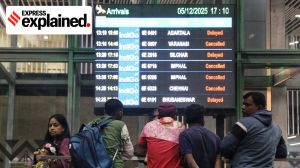As MP doubles down on cattle smuggling, officials kept busy with arrests, demolitions and raids
In 2022, two tribal men were lynched by a mob over suspicion of cow slaughter.
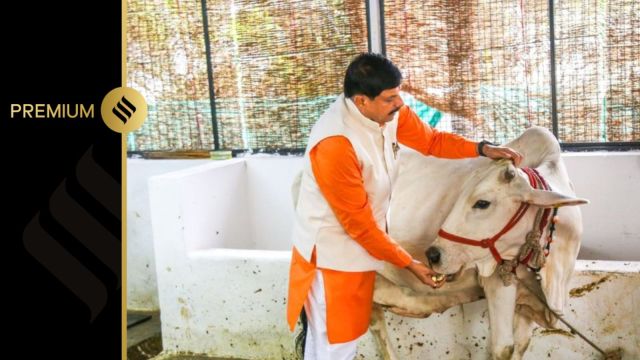 Madhya Pradesh Chief Minister Mohan Yadav had directed all state officials to take special action on illegal transportation of cows. (Express Photo)
Madhya Pradesh Chief Minister Mohan Yadav had directed all state officials to take special action on illegal transportation of cows. (Express Photo)The Madhya Pradesh government has declared 2024 as ‘Gauvansh Raksha Varsh’ (Bovine Protection Year), doubled down on efforts to confiscate vehicles used in cattle smuggling, tripled the budget for cow protection and directed senior officers in every district to clamp down on cow slaughter.
In the six months since Mohan Yadav took over as Chief Minister, the BJP government he leads has made its evident that cow protection and a crackdown on cattle smuggling are among its top priorities, forcing an already stretched government machinery – from the district administration to the police and the prosecution – to match up to the task.
Between January and June this year, police have arrested 1,651 people in 731 cases related to illegal cattle transport; the corresponding period last year saw 212 cases and around 400 cases in the whole of 2023.
The state also demolished 21 homes of the accused, including 11 on June 15 in Mandla district, where beef was allegedly found in the refrigerators of the accused. Police have also seized 450 vehicles and rescued 7,524 cows across the state this year.
Seoni, a tribal-dominated district in south Madhya Pradesh, is central to the government’s crackdown on cattle smuggling. It was here that 63 butchered bovines were found on June 19, prompting the CM to transfer the local SP and collector overnight.
In the first half of the year, 55 cases were registered in the district, 99 people arrested, and 1,301 cows rescued. In 2023, there were 136 cases through the year, 279 arrests, and 1,740 cattle rescued. Last year, the Seoni police recovered 673 kg of beef and seized 93 vehicles. Balaghat, with 48 cases, Betul (40), Khargone (34), and Neemuch (23) are the other districts where the administration has cracked down.
In Seoni, a deluge of cases
Seoni is a key transit point for cattle smugglers on NH44. Cattle are allegedly trafficked from north and east MP, including Jhansi (UP) and Morena, and central regions such as Vidisha, before they head to slaughterhouses in Nagpur and southern states.
Seoni’s new SP Sunil Mehta spends little time in his office, focusing on field visits to strengthen efforts against cow smuggling.
“A trader can earn Rs 30,000 per cow from meat, skin, and bones, AFTER spending about Rs 22,000 on transport and transit,” Mehta explained.
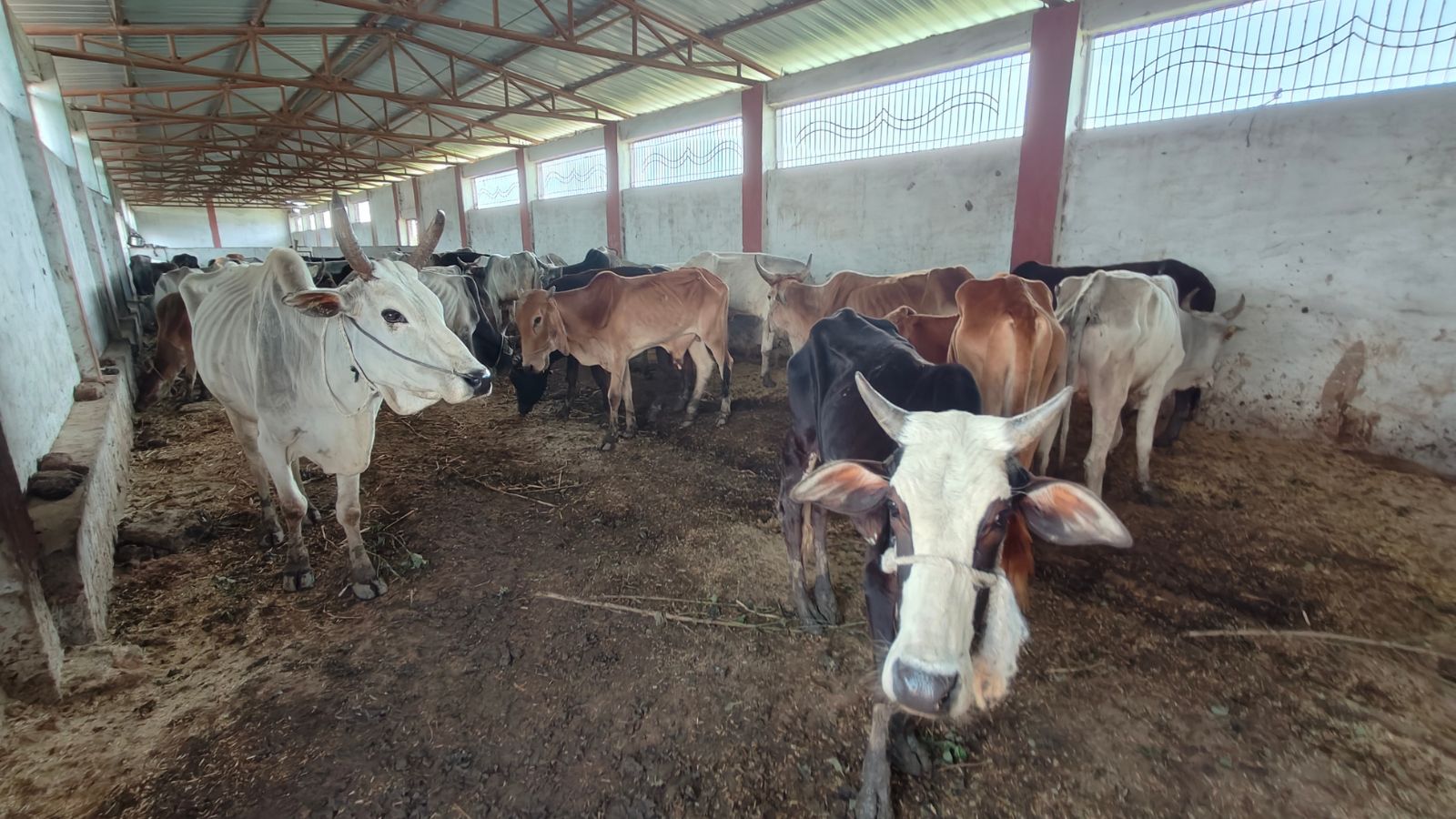 The MP government has started clamping down on cow slaughter by introducing stricter provisions in the law. (Express Photo by Anand Mohan J)
The MP government has started clamping down on cow slaughter by introducing stricter provisions in the law. (Express Photo by Anand Mohan J)
A senior CID official noted that pickup trucks, costing Rs 20-50 lakh, carry cows worth Rs 2-8 lakh. “Even a few trips cover vehicle costs. Our focus is now on seizing and auctioning these vehicles to disrupt the network.”
Only a few weeks into her posting, Seoni Collector Sanskriti Jain has been reviewing cases lodged under the National Security Act (NSA) against cattle smugglers.
Jain plans to focus on preventive measures and intelligence gathering. “We can invoke the NSA to maintain law and order based on SP reports. We will also confiscate vehicles under the amended MP Govansh Vadh Pratishedh Adhiniyam, 2004 (one of the two anti-cattle slaughter laws in the state). We are identifying individuals involved in these activities early, reviewing their history, and taking preventive actions to ensure they don’t breach the peace,” she said.
A senior official in the district emphasised the need for sensitive policing, noting that beef consumption in these districts involves various sub-castes and is “not just a Hindu-Muslim issue”.
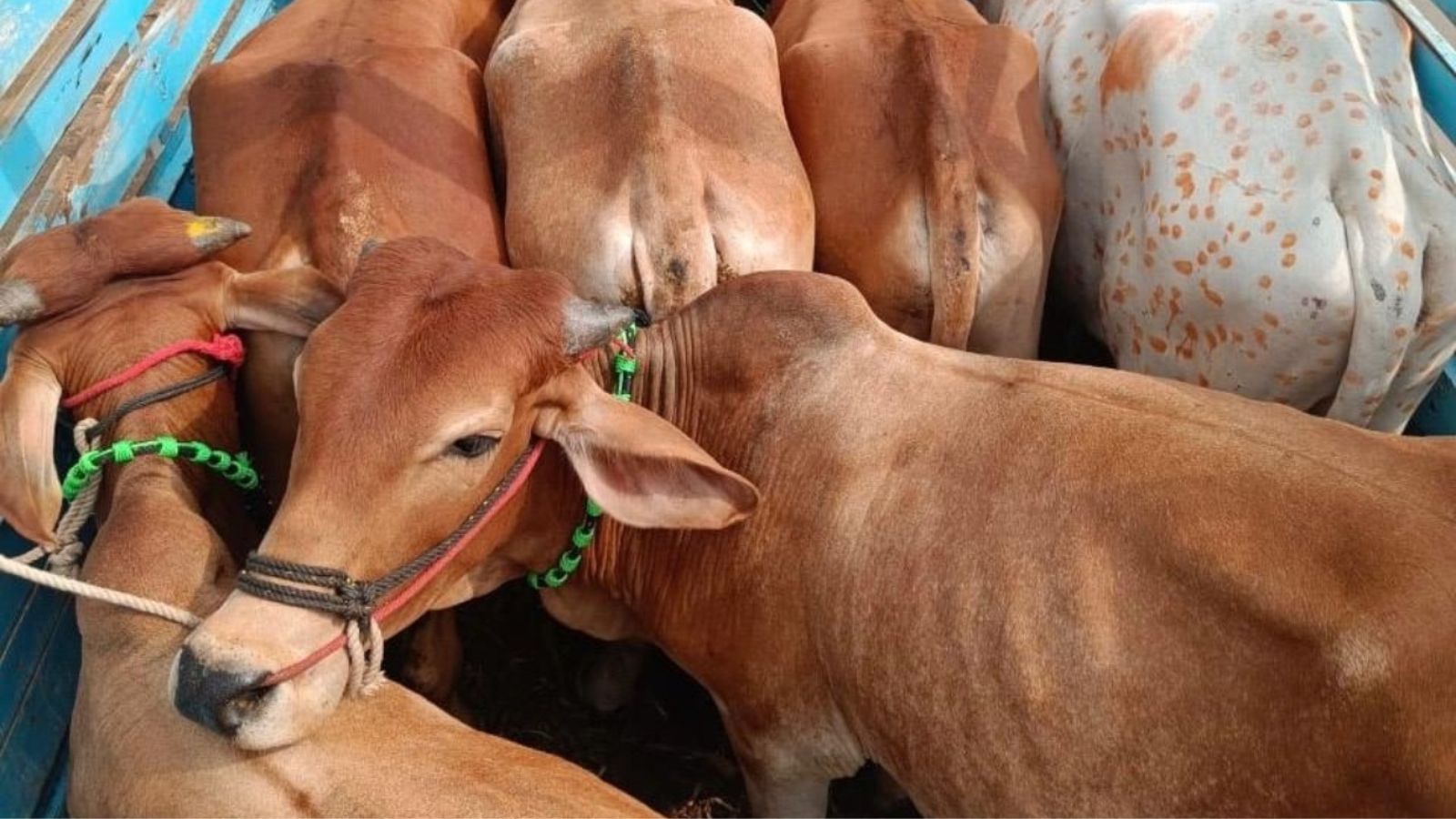 At Barghat police station, where former cattle smuggling convicts are asked not to ever return to illegal activities. (Express Photo by b Anand Mohan J)
At Barghat police station, where former cattle smuggling convicts are asked not to ever return to illegal activities. (Express Photo by b Anand Mohan J)
“Sensitive policing is crucial to prevent communal incidents, given Seoni’s history of such violence,” the official said.
In 2022, two tribal men were lynched by a mob over suspicion of cow slaughter.
Calling for better “inter-district police management”, Additional SP Gurudatt Sharma said, “There are about 150 police stations along the route to Seoni.”
An analysis of arrests from 2019 to 2024 highlights interstate dynamics. Seoni residents led with 209 arrests, followed by Narsinghpur with 98, Nagpur (Maharashtra) with 64, and Uttar Pradesh with 20 arrests.
At the Seoni district court, state prosecution offices are buried under court files. As an investigator added four more cow slaughter chargesheets to the pile, a senior prosecution branch officer said, “More cow cases? Don’t we have anything else to do?”
“Prosecutors at Judicial Magistrate First Class courts handle 8-10 cow slaughter cases each. They are understaffed, leading to a poor disposal rate of 30% in cattle smuggling cases,” the officer added.
This year, 399 cases were heard at the Seoni district court. Of these, 19 ended in acquittal, eight in conviction, and eight remain stalled with the main accused missing. Each cattle smuggling case takes about three years to conclude. To address this, Bhopal’s state prosecution branch plans to add 700 prosecutors statewide over the next few years.
Prosecutors report growing difficulty in cattle smuggling cases. Typically, only vehicle owners are arrested as drivers flee. “But then, the owners produce rental agreements, claiming no knowledge of the smuggling. These documents are often created post-arrest, but we lack resources to disprove them,” said an Additional District Prosecution Officer (ADPO). “Proving intent for slaughter is extremely difficult. The accused often have valid sale documents and cattle ID tags. Police make arrests based on informant tips, targeting farmers from animal markets. These cases frequently fall apart in court.”
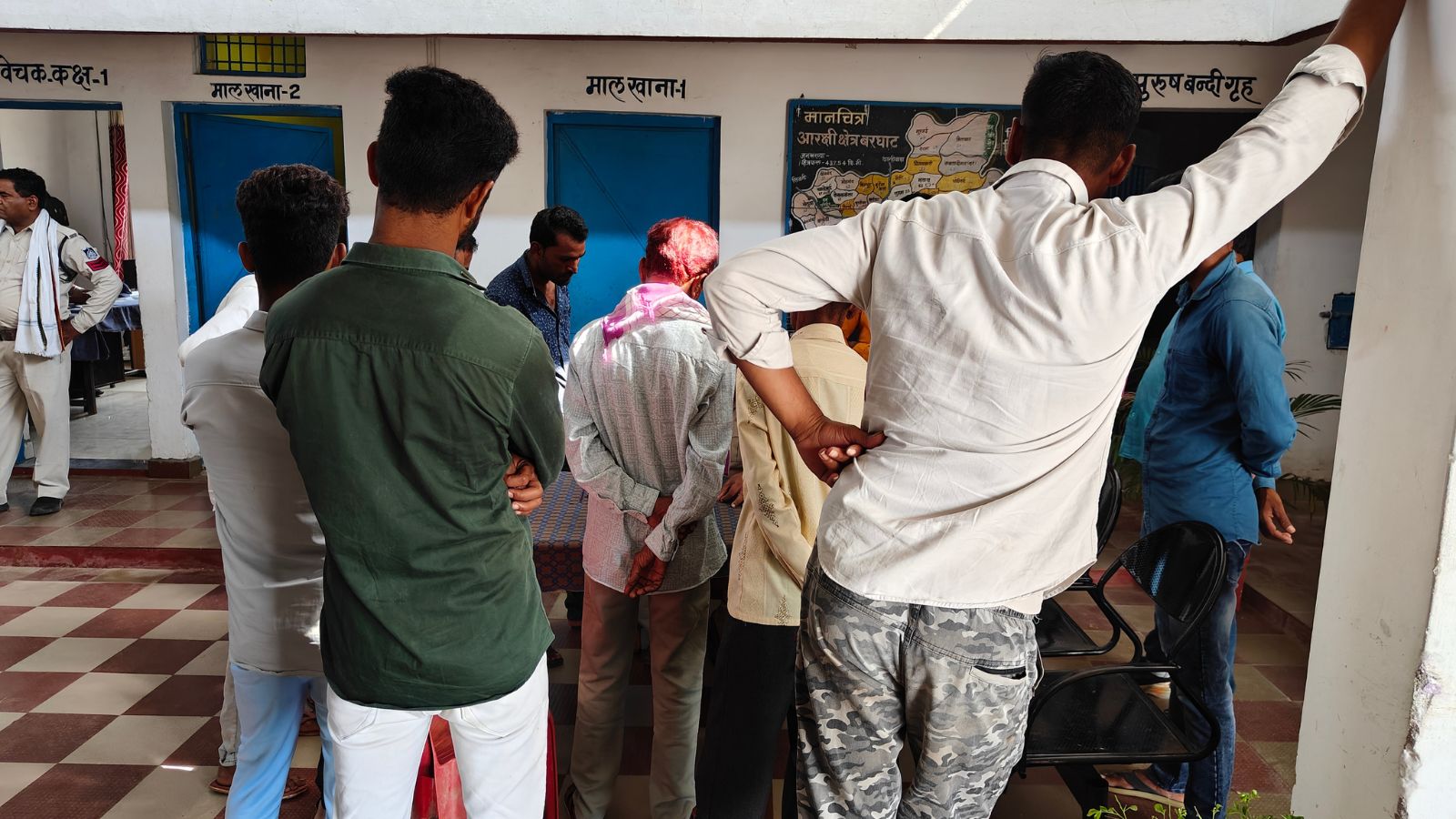 Most gaushalas in the state lack the adequate infrastructure to house rescued cattle. (Express Photo by Anand Mohan J)
Most gaushalas in the state lack the adequate infrastructure to house rescued cattle. (Express Photo by Anand Mohan J)
Hostile witnesses also lead to acquittals.
“In a lot of cases, the witnesses and the accused belong to the same village. They turn hostile as the police are unable to protect them. Then there is the case of public witnesses, who police rope in to witness seizures. During the trial, it is often found that they were never taken to the operation by the police and merely signed on blank papers,” said the official.
Typically in cattle smuggling cases, the state police invoke sections of the Prevention of Cruelty to Animals Act, 1960; and sections of the two anti-cow-smuggling laws. The maximum punishment for anyone convicted under these laws is a three-year imprisonment.
Senior officers from the districts of Seoni, Balaghat and Chhindwara say that to ensure that the lower courts do not hand out bail, police usually invoke far tougher provisions, including those relating to ‘promoting enmity between different religious groups’. “I seized 35 kg of beef last month from a repeat offender. So we invoked provisions of promoting enmity. But after a month, they ended up getting bail from the High Court. In court we end up having trouble defending why the section was invoked,” said an Inspector rank officer from Mandla.
Having to play catch-up
Following a directive from CM Yadav, senior officers of the state prepared a thorough analysis of the routes of illegal transportation of cows in the last 10 years, but, police say, they are up against people who are always a step ahead of them.
The police learnt that “the criminals involved in illegal transportation of cows try to take the cows away from the main roads through the jungle and village dirt roads.”
There are also “lookouts” who warn the alleged smugglers of the police. “Around 5 km ahead of the truck transporting cows, they have someone who drives a bike and acts as a lookout. The minute the lookout sees a police checkpoint, the transport vehicle is alerted. We are unable to do surprise inspections and can only check 3-4 vehicles in a day before the accused gets the tip-off,” said an Assistant Sub Inspector in Seoni.
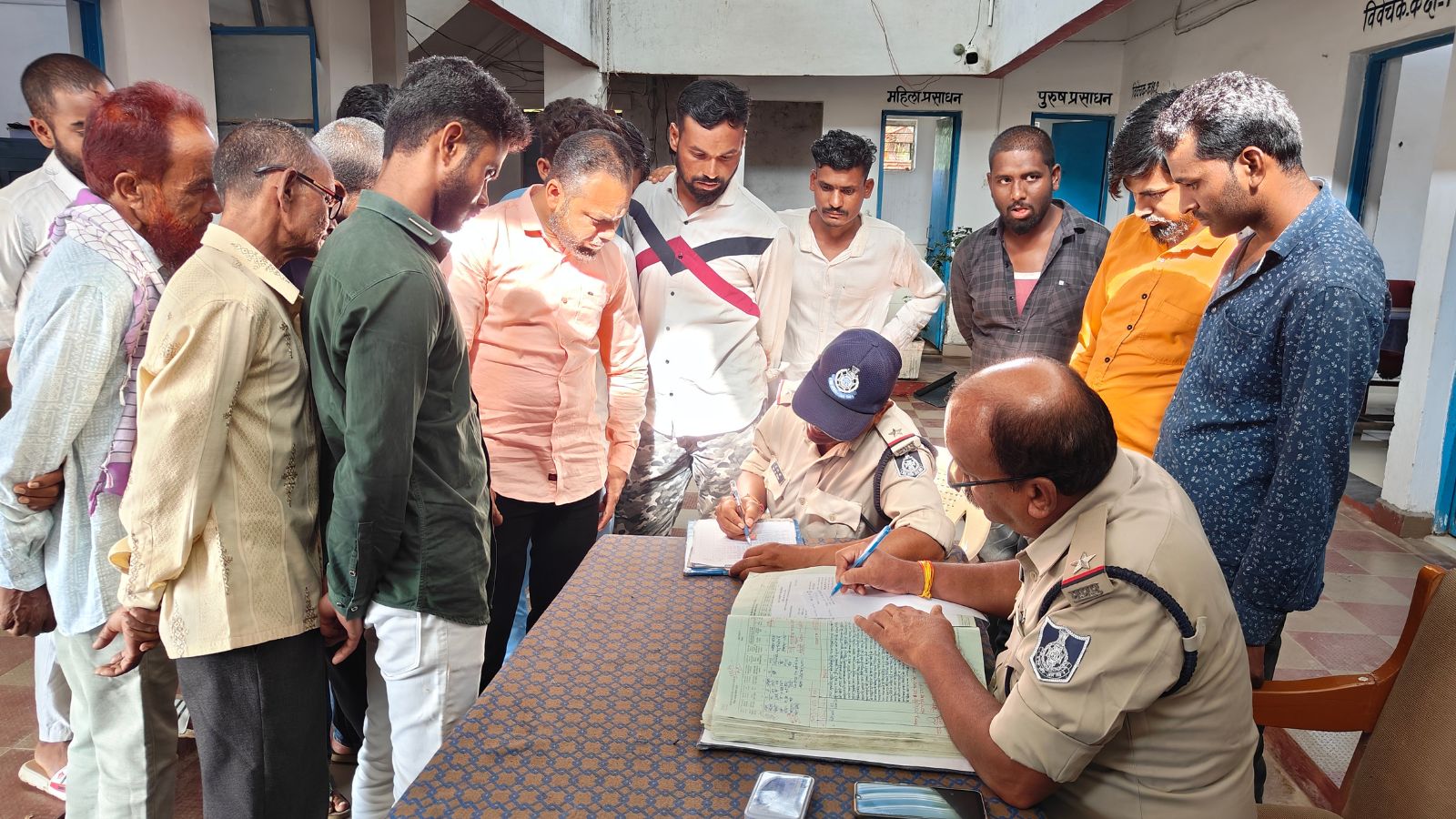 Trucks seized from alleged cattle smugglers. The government has now empowered Collectors to seize vehicles used for cattle smuggling. (Express Photo by Anand Mohan J)
Trucks seized from alleged cattle smugglers. The government has now empowered Collectors to seize vehicles used for cattle smuggling. (Express Photo by Anand Mohan J)
At the checkpoints, considering the staff deficit, police can at best check two trolleys randomly. “The district needs 200 more personnel to effectively patrol the 170 km highway stretch to Nagpur,” said a senior officer.
Then there’s the question of what’s to be done with the confiscated cattle. Another officer said, “We don’t have enough gaushalas. There are facilities made for 500 cows in Seoni but those are packed with at least 800 cows. At times we house the cows at our police stations and feed them with our own money till we find a suitable gaushala.”
Seoni SP Mehta now plans to carry out “a public outreach programme to educate people about the illegalities of cattle smuggling and steer them towards alternative livelihoods.”
At Bori Kalan village, Deputy Sarpanch Zakir Khan is resting his feet before he embarks on a 12-hour trip transporting rice in his truck. Just a few years ago, he had served time for being involved in three cattle smuggling cases. “I don’t ferry cattle anymore…. It’s a Hindu-Muslim issue now and there is a threat to my life,” he said.
- 01
- 02
- 03
- 04
- 05

















